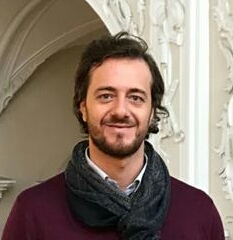Studying at the University of Verona
Here you can find information on the organisational aspects of the Programme, lecture timetables, learning activities and useful contact details for your time at the University, from enrolment to graduation.
Academic calendar
The academic calendar shows the deadlines and scheduled events that are relevant to students, teaching and technical-administrative staff of the University. Public holidays and University closures are also indicated. The academic year normally begins on 1 October each year and ends on 30 September of the following year.
Course calendar
The Academic Calendar sets out the degree programme lecture and exam timetables, as well as the relevant university closure dates..
| Period | From | To |
|---|---|---|
| primo semestre (lauree) | Sep 28, 2020 | Dec 23, 2020 |
| secondo semestre (lauree) | Feb 15, 2021 | Jun 1, 2021 |
| Session | From | To |
|---|---|---|
| sessione invernale | Jan 11, 2021 | Feb 12, 2021 |
| sessione estiva | Jun 7, 2021 | Jul 23, 2021 |
| sessione autunnale | Aug 23, 2021 | Sep 17, 2021 |
| Session | From | To |
|---|---|---|
| sessione autunnale (validità a.a. 2019/20) | Dec 9, 2020 | Dec 11, 2020 |
| sessione invernale (validità a.a. 2019/20) | Apr 7, 2021 | Apr 9, 2021 |
| sessione estiva (validità a.a. 2020/21) | Sep 6, 2021 | Sep 8, 2021 |
| Period | From | To |
|---|---|---|
| Vacanze di Natale | Dec 24, 2020 | Jan 6, 2021 |
| Vacanze di Pasqua | Apr 3, 2021 | Apr 6, 2021 |
| Vacanze estive | Aug 9, 2021 | Aug 15, 2021 |
Exam calendar
Exam dates and rounds are managed by the relevant Economics Teaching and Student Services Unit.
To view all the exam sessions available, please use the Exam dashboard on ESSE3.
If you forgot your login details or have problems logging in, please contact the relevant IT HelpDesk, or check the login details recovery web page.
Should you have any doubts or questions, please check the Enrollment FAQs
Academic staff
 alessandro.barbazeni@univr.it
alessandro.barbazeni@univr.it
 paolo.braguzzi@univr.it
paolo.braguzzi@univr.it
 laura.chiaramonte@univr.it
laura.chiaramonte@univr.it
 stefano.gatti@univr.it
stefano.gatti@univr.it
Study Plan
The Study Plan includes all modules, teaching and learning activities that each student will need to undertake during their time at the University.
Please select your Study Plan based on your enrollment year.
1° Year
| Modules | Credits | TAF | SSD |
|---|
2° Year activated in the A.Y. 2021/2022
| Modules | Credits | TAF | SSD |
|---|
3° Year activated in the A.Y. 2022/2023
| Modules | Credits | TAF | SSD |
|---|
| Modules | Credits | TAF | SSD |
|---|
| Modules | Credits | TAF | SSD |
|---|
| Modules | Credits | TAF | SSD |
|---|
| Modules | Credits | TAF | SSD |
|---|
Legend | Type of training activity (TTA)
TAF (Type of Educational Activity) All courses and activities are classified into different types of educational activities, indicated by a letter.
Corporate Law (2022/2023)
Teaching code
4S008955
Academic staff
Coordinator
Credits
6
Language
Italian
Scientific Disciplinary Sector (SSD)
IUS/04 - BUSINESS LAW
Period
Secondo semestre (lauree) dal Feb 20, 2023 al May 31, 2023.
Learning objectives
The course aims to address the study of individual types of companies (functional and organizational types) with specific attention to listed companies and financial markets. In line with the general objectives of the Degree Course in which the teaching is included, it aims to deepen the study of corporate functions (management, strategic direction and supervision and control) and internal corporate functions, by providing the conceptual and methodological basis of the thematic areas dealt with in order to correctly interpret the principles, theories and practices that characterize the subject matter of teaching, as well as by encouraging a holistic approach to the matter. At the end of the lessons, the student will be able to use consciously and correctly the specialist legal language of the subject matter, to apply the method and the legal reasoning learned, with autonomy of judgment, for a correct interpretation of the fundamental institutions of the subject in the business and professional field, as well as to combine and apply the known legal rules in order to obtain a reasonable rule of judgement for the individual case.
Prerequisites and basic notions
Institutional knowledge of commercial law
Program
The program focuses on the rules of corporate governance and management of joint stock companies (spa and srl). In particular, it analyzes management skills, the structure and functioning of the administrative body, the obligations and duties of directors, the rules on directors' fees, representation of the company, the responsibilities of directors. Internal controls by the shareholders, the board of statutory auditors, the auditor. External controls and judicial control. The dualistic and monistic governance systems. The relationship between ownership and government of corporations: interferences in management and accountability. The categories of shares and quotas have an impact on corporate governance. The relationship between sustainable development and corporate governance law. The debate on sustainable corporate governance. The impact of the discipline on sustainability reports and of the EU taxonomy of eco-sustainable economic activities on the sustainable management of equity companies. The texts to be used for the preparation of the exam are: M. Irrera (directed by), Government law of joint stock companies and limited liability companies, Giappichelli Editore, Turin, 2020, from page. 342 (excluding chapter XVI); and A. Genovese, The eco-sustainable management of the stock company. Between rules and context. Il Mulino, Bologna, 2023, from p. 1 on p. 188.
Bibliography
Didactic methods
The teaching methods consist of lectures dedicated to the transmission of basic notions, key categories and fundamental application tools. The didactic offer is also imparted through the case study method with the illustration of cases subject to jurisprudential rulings or particularly significant practical cases, useful for the implementation of knowledge. Furthermore, also thanks to the University e-learning platform, specific updating readings are proposed. Throughout the academic year, the individual reception service is available, managed by the teachers at the end of the lessons or by booking via email or even through the University's online platform. Students can also at any time ask written questions via email to teachers, which are processed promptly. The online formulation of questions allows students to measure themselves also with written legal language and to practice dialectically. The "active" participation of students in the lessons is positively evaluated. With regard to non-attending students, the teaching methods consist in the constant care by teachers of non-attending students through individual support in the study of the recommended textbooks. The content of the textbooks and lectures held in the classroom adheres to the program. Further didactic material relating to the program is available on the e-learning platform of the teaching.
Learning assessment procedures
The verification of the acquisition by the students of the method, of the notions, of the skills and of the educational objectives indicated above, as well as of the specialized language of Company Law takes place through an oral exam on the entire program and on the study texts indicated in the Teaching program , at the end of the course, with a vote out of thirty. There are no intermediate tests.
Evaluation criteria
The oral test consists in particular in an interview aimed at verifying: - understanding and knowledge of the texts indicated in the teaching programme; - the depth and breadth of knowledge gained; - ownership of legal language; - the ability to connect knowledge in a systemic form and to use the reference normative sources; - analytical and argumentative skills.
Criteria for the composition of the final grade
The vote is expressed in thirtieths. To pass the exam it is necessary to achieve 18 thirtieths. Passing the exam requires registration of the test. For particularly brilliant exams, the coordinating teacher can award honours.
Exam language
italiano
Type D and Type F activities
| years | Modules | TAF | Teacher |
|---|---|---|---|
| 1° | Future matters | D |
Alessandro Bucciol
(Coordinator)
|
| 1° | Future matters | D |
Alessandro Bucciol
(Coordinator)
|
| years | Modules | TAF | Teacher |
|---|---|---|---|
| 1° | Discovering fair trade | D |
Angelo Bonfanti
(Coordinator)
|
| 1° | Business skills in action | D |
Angelo Bonfanti
(Coordinator)
|
| 1° | Design and Evaluation of Economic and Social Policies | D |
Federico Perali
(Coordinator)
|
| 1° | Public debate and scientific writing - 2020/2021 | D |
Martina Menon
(Coordinator)
|
| 1° | Wake up Italia - 2020/2021 | D |
Sergio Noto
(Coordinator)
|
| years | Modules | TAF | Teacher | |
|---|---|---|---|---|
| 1° | Ciclo di video conferenze: "L’economia del Covid, Verona e l’Italia. Una pandemia che viene da lontano?" - 2020/21 | D |
Sergio Noto
(Coordinator)
|
|
| 1° | Ciclo tematico di conferenze (on-line): “Come saremo? Ripensare il mondo dopo il 2020” - 2020/21 | D |
Federico Brunetti
(Coordinator)
|
|
| 1° | Marketing plan - 2020/21 | D |
Virginia Vannucci
(Coordinator)
|
|
| 1° 2° | Programming in Matlab | D |
Marco Minozzo
(Coordinator)
|
|
| 1° 2° 3° | Data Analysis Laboratory with R (Verona) | D |
Marco Minozzo
(Coordinator)
|
|
| 1° 2° 3° | Data Visualization Laboratory | D |
Marco Minozzo
(Coordinator)
|
|
| 1° 2° 3° | Python Laboratory | D |
Marco Minozzo
(Coordinator)
|
|
| 1° 2° 3° | Data Science Laboratory with SAP | D |
Marco Minozzo
(Coordinator)
|
|
| 1° 2° 3° | Advanced Excel Laboratory (Verona) | D |
Marco Minozzo
(Coordinator)
|
|
| 1° 2° 3° | Excel Laboratory (Verona) | D |
Marco Minozzo
(Coordinator)
|
|
| 1° 2° 3° | Programming in SAS | D |
Marco Minozzo
(Coordinator)
|
|
Career prospects
Module/Programme news
News for students
There you will find information, resources and services useful during your time at the University (Student’s exam record, your study plan on ESSE3, Distance Learning courses, university email account, office forms, administrative procedures, etc.). You can log into MyUnivr with your GIA login details: only in this way will you be able to receive notification of all the notices from your teachers and your secretariat via email and soon also via the Univr app.


 045 802 8292
045 802 8292



























